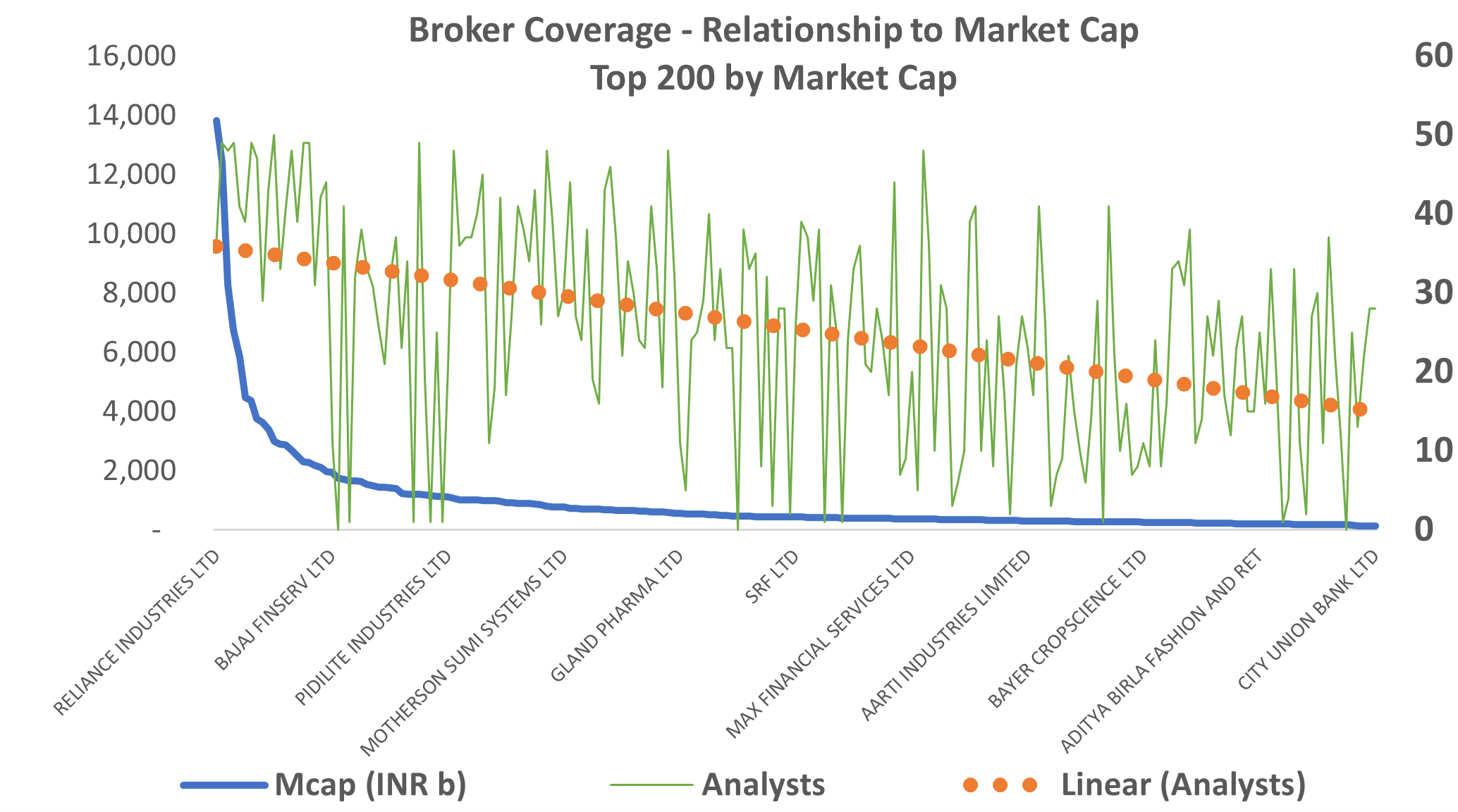Active management...alive and well
As interest rates have fallen globally over the last decade in response to “kicking the can down the road” post GFC, valuations have mattered less and less. Discount rates used to assess investments allow you to write your own ticket in terms of what a company or for that matter anything is worth.
Given the lower dispersion in outcomes, choices mattered less, setting off a wave of passive/ETF investing. Considering the huge surge of passive investment in the last decade, our thinking has become attuned to participation in fast moving upward trends, backed by the ongoing liquidity tailwind.
The domain of passive investment is significantly dominated by replicating market cap weighted indices. Many of us have forgotten or devalued real insights which drive active manager behaviour - something the markets cannot survive without. Theory will tell you that active investing can only bear fruit in an inefficient market where information is not priced in instantaneously. However, in essence, no market is perfectly efficient. A greater level of efficiency simply means the horizon of the trade needs to be longer to add relative value to a benchmark.
Investing in markets like India, China and other so called emerging markets can lead to more fruitful results for active managers given lower broker coverage of stocks down the capitalisation curve. For example, India’s equity markets are home to 6,000 plus listed companies, with only significant coverage on the top 150-200 or so by market capitalisation. However, there are at least 1,000 investable companies and above 6,000 listed in total.

A case study for active management in India:
Buying Real Estate Stocks in 2020
1. Early Identification of an investment theme before consensus
India’s real estate sector was going through significant issues over the last 5 years. Firstly, demonetisation impacted physical assets and the cash-economy significantly and led to a shift towards financial assets and away from areas like real estate and gold. Secondly, this led to the collapse of several real estate businesses and impacted financiers leading to a withdrawal of liquidity. The cost of capital also remained high and the lack of liquidity in the system meant capital was increasingly rationed. As a result, there has been significant consolidation in the space over the last 5 years, leaving only survivors.
However, post COVID-19 (wave 1) what occurred was lower interest rates, increasing liquidity injection, a booming IT industry, rising IT wages and a real estate industry with fewer players, stronger balance sheets and demand rising to clear existing supply.
2. Leveraging your idea with the best companies
There are several ways to play the Real Estate sector such as developers, landlords, cement producers, infrastructure plays etc. When a theme has been identified, the next steps revolve around how to express that thematic via a call-option type pay-off. If you are right, then the return achieved can be significant and importantly if incorrect then the loss is limited.
IT firms are benefitting significantly from a significant surge in tech capex spending. Indian IT firms serve 60% of the worlds outsourcing requirements. These firms are noting significant orders and workflow since COVID-19 which is leading to higher rates of staff attrition as salaries rise handsomely. This is translating into much faster moving stock at hand for real estate compared to the last 6 years. This is particularly the case in the Southern part of India, which is where most IT firms are headquartered.
Lower interest rates, financial system liquidity and lack of other consumption options are also playing a significant role in a recovering Real Estate sector. This is likely to lead to a significant increase in the bottom line for the remaining stronger players in the property developer’s industry.
It's important to ask the question as to whether you seek to play the thematic or cycle over the long-term with a quality company or try to gain operational leverage to the theme with a riskier, but cheaper lower quality company.
3. Smart Implementation
Recognise what the market is short and is therefore under-owned. Realty was a small and under-owned part of the market given its checked history. Given there is some risk to the thesis it does not have to be a high conviction position, but an initiation which can be added to as the timeline for your idea starts taking place.
The Mutual Fund Industry in India has held extremely low exposure to this thematic given its history of a chequered past of the last decade. As can been seen from the charts below the BSE-200 (a broad index of 200 stocks by market cap has only 0.5% exposure to the Real Estate sector). Despite the success of this trade over the last 9 months, Index exposure has risen from 0.3% to 0.5% and Mutual Fund exposure only to just 0.6%.
Summary
Whilst the consensus view is that efficient markets are difficult to outperform in, it quite often depends on the length of horizon on the trade. Thematic investors can add value by identifying a theme/trend early through their insights and research, rather the relying on broker research and insight on company fundamentals.
In less efficient markets such as India, value can be added by active managers not just from identifying a trend before consensus, but also by insights on which companies will benefit and why. Active management is as much about top-down / thematic thinking as it is about underlying company research.
With interest rates only likely to stay flat or rise from here, valuation will start to play a more important role in the dispersion of stock returns. This will bring to the fore the skills of active managers who are able to exploit inefficiencies through insight, knowledge and intelligent implementation.
2 topics

